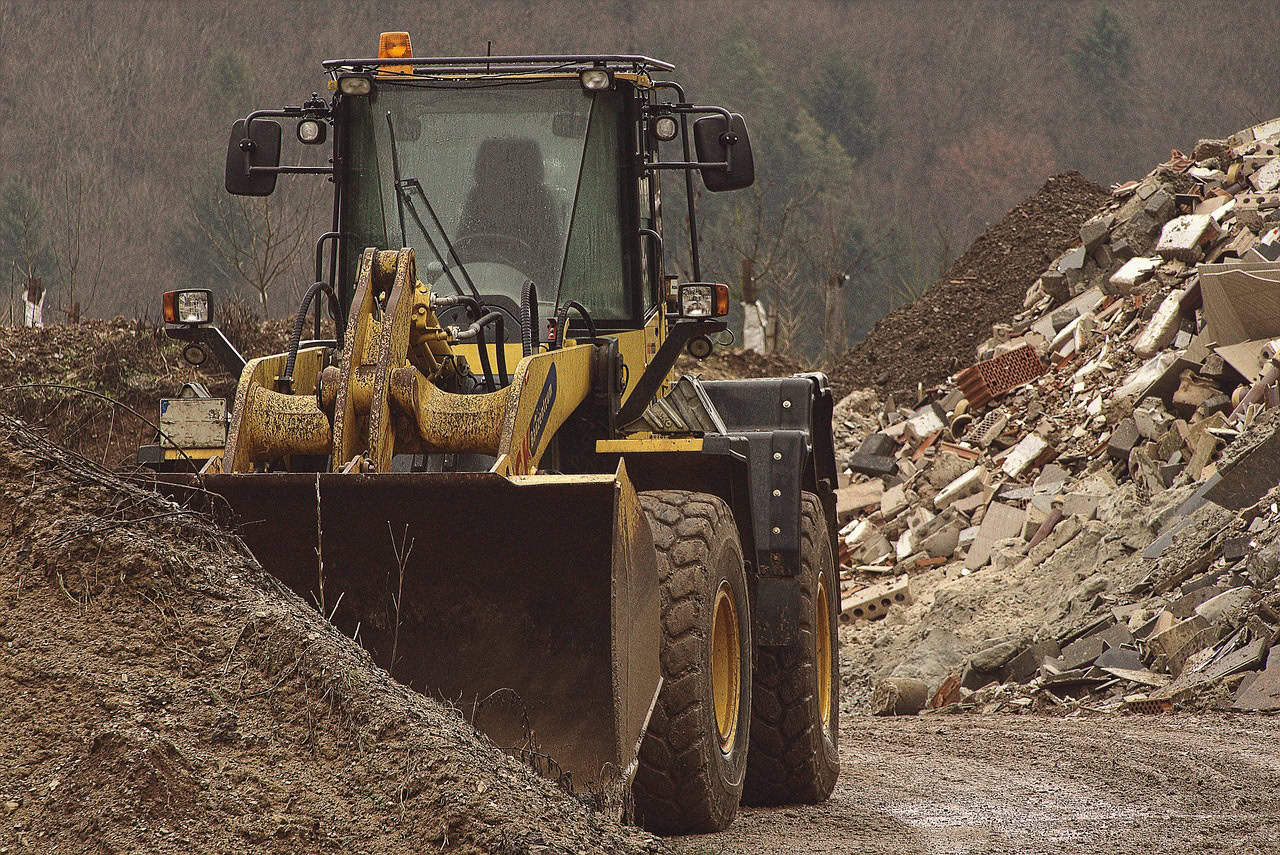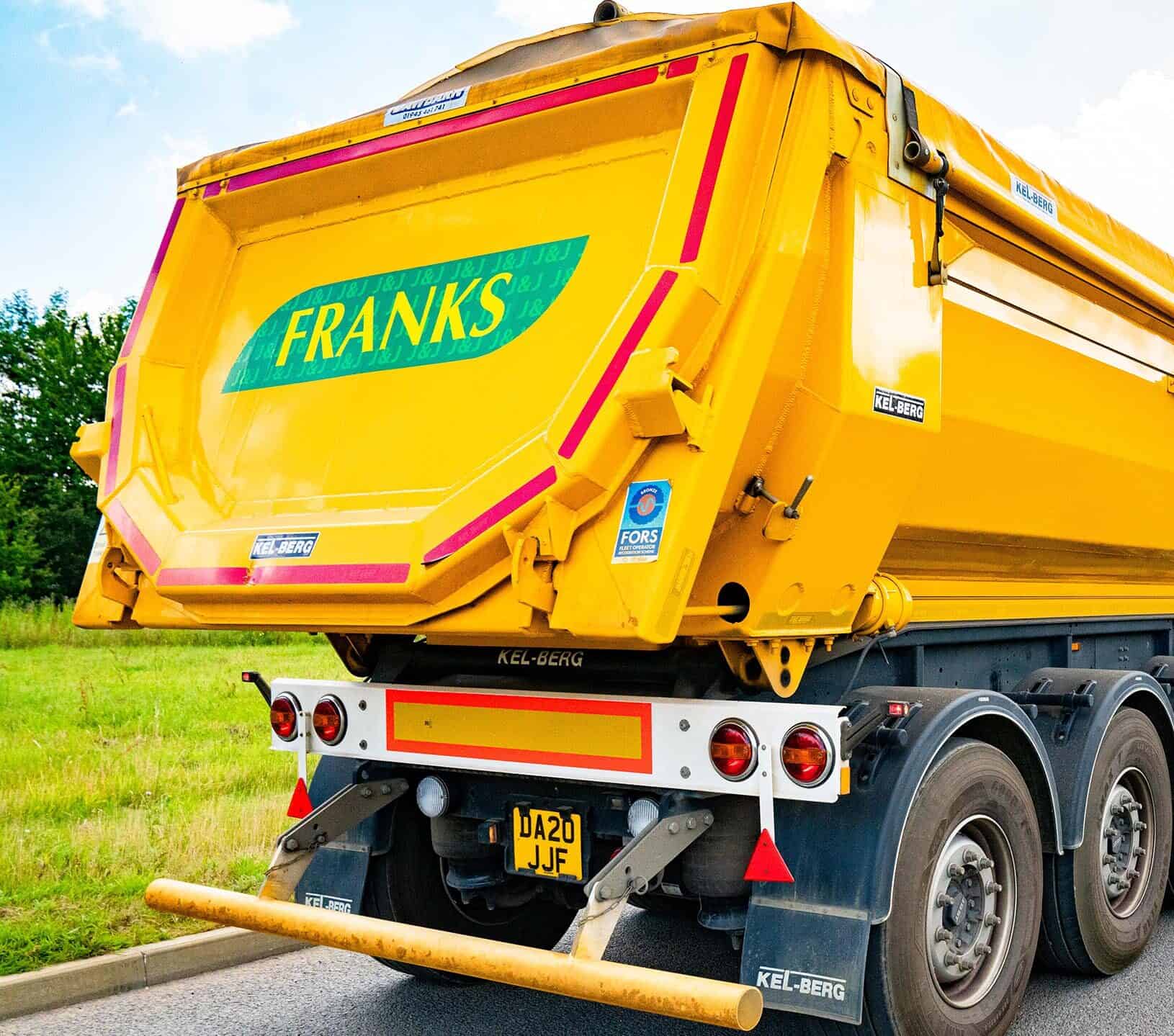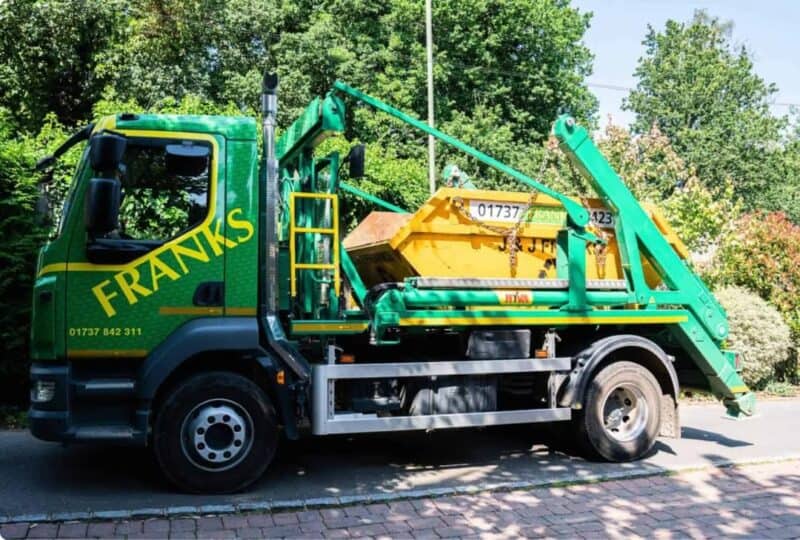Sustainable waste management is becoming an essential focus within the construction industry, particularly as landfill space continues to diminish and environmental concerns rise. One of the most effective ways to reduce the strain on landfills is through the use of sustainable aggregate products, which repurpose materials from construction and demolition waste. These recycled aggregates provide a viable alternative to virgin materials, helping to reduce waste, conserve resources and lower carbon emissions.
The increasing adoption of recycled aggregate products plays a critical role in reducing landfill dependency. By diverting construction waste from disposal sites and reintegrating these materials into new projects, the industry can significantly extend the lifespan of landfills while supporting circular economy principles. J&J Franks is committed to providing high-quality recycled aggregates that meet strict industry standards, ensuring businesses have access to sustainable aggregate products that offer both environmental and economic advantages.
Reducing landfill waste and extending landfill lifespan with recycled aggregate products
The construction industry generates vast amounts of waste, much of which has traditionally ended up in landfills. Demolition projects, site clearances and infrastructure renovations produce high volumes of concrete, brick, asphalt and other materials, which take up valuable landfill space and contribute to long-term environmental damage. Without intervention, the demand for new landfill sites will continue to grow, further encroaching on natural landscapes and ecosystems.
Recycling aggregate products provides a sustainable solution by diverting these materials from landfill and repurposing them for new construction applications. Crushed concrete, for example, can be processed into secondary aggregates for use in road bases, drainage layers and structural fill. Brick and asphalt can also be broken down and reused in a variety of applications, reducing the need for raw materials while preventing unnecessary waste accumulation.
By integrating sustainable aggregate products into construction projects, companies actively contribute to waste reduction and landfill longevity. At J&J Franks, our advanced recycling facilities ensure that construction waste is efficiently processed and converted into high-quality materials suitable for reuse. This approach not only helps protect the environment but also reduces overall disposal costs, making it a practical and responsible choice for businesses.
Environmental benefits of using recycled aggregates in construction
Recycling aggregates offers significant environmental benefits that align with the industry’s shift towards more sustainable building practices. One of the most notable advantages is the conservation of natural resources. Traditional aggregate extraction involves quarrying materials such as limestone, gravel and sand; processes that disrupt ecosystems, deplete non-renewable resources and contribute to habitat destruction. By opting for sustainable aggregate products, businesses can minimise the demand for these virgin materials, helping to preserve the natural environment.
Additionally, the production of recycled aggregates consumes far less energy than the extraction and processing of new materials. Mining and transportation require substantial fuel consumption, generating high levels of carbon emissions. In contrast, recycling construction waste into usable aggregates significantly reduces the carbon footprint of construction projects by cutting down on energy-intensive material production and reducing transportation distances.
Water conservation is another critical benefit of using recycled aggregates. The production of traditional aggregates requires significant water usage for washing and processing. Recycled aggregates, however, undergo processing techniques that use less water, further reducing environmental strain. At J&J Franks, we are committed to providing environmentally responsible sustainable aggregate products that help businesses reduce their ecological impact while maintaining high industry standards.
Comparing recycled aggregates to traditional materials in quality, durability and cost
A common concern among construction professionals is whether recycled aggregates can match the performance of traditional virgin materials. However, modern processing techniques have significantly improved the quality and durability of sustainable aggregate products, making them a reliable alternative for many construction applications.
Recycled aggregates undergo rigorous testing and processing to ensure they meet industry specifications. Crushed concrete, for instance, is carefully screened to remove contaminants and processed into a consistent grade suitable for structural applications. Similarly, recycled asphalt and brick are refined to maintain strength and stability, making them ideal for road construction, pathways and foundation layers.
Cost efficiency is another major advantage of using recycled aggregates. Traditional aggregates often come with high extraction, processing and transportation costs, whereas recycled materials are typically more affordable. Additionally, using recycled aggregates reduces landfill disposal fees, helping construction companies manage costs more effectively while meeting sustainability goals.
At J&J Franks, we ensure that all our recycled aggregates meet stringent quality standards, providing businesses with a cost-effective and environmentally responsible alternative to traditional materials. By choosing sustainable aggregate products, companies can reduce expenses while maintaining the structural integrity of their projects.
The role of waste management and recycling facilities in promoting recycled aggregates
Recycling facilities play a crucial role in supporting the adoption of sustainable aggregate products by efficiently processing construction waste and transforming it into high-quality reusable materials. Without effective waste management infrastructure, much of this waste would continue to be disposed of in landfills, exacerbating environmental challenges and resource depletion.
At J&J Franks, our state-of-the-art recycling facilities are designed to handle large volumes of construction waste, ensuring that valuable materials are recovered and repurposed. Advanced sorting technologies allow us to separate recyclable aggregates from general waste, removing contaminants and improving the quality of recycled materials. This process not only enhances the usability of recycled aggregates but also contributes to overall waste reduction.
Additionally, waste management facilities play a key role in promoting the widespread adoption of recycled aggregates by raising awareness and working with construction firms to implement more sustainable waste disposal strategies. By collaborating with recycling providers, businesses can streamline waste management practices, reduce environmental impact and improve efficiency in material use.
The continued growth of the recycled aggregates market depends on the commitment of waste management companies, government regulations and industry-wide adoption of sustainable building materials.
Moving towards a more sustainable construction industry
The use of sustainable aggregate products is transforming how the construction industry manages waste and conserves resources. By diverting materials from landfills and reintegrating them into new projects, businesses can reduce environmental impact, lower costs and promote circular economy practices. Recycling aggregates not only benefits the environment but also enhances project efficiency, making it a smart choice for companies committed to sustainability.
J&J Franks provide high-quality recycled aggregates that meet industry standards while supporting eco-conscious building initiatives. By adopting these materials, construction firms can actively contribute to a greener future, reducing landfill dependency and conserving valuable resources. The shift towards recycled aggregates is a necessary step in ensuring long-term sustainability and responsible waste management.









